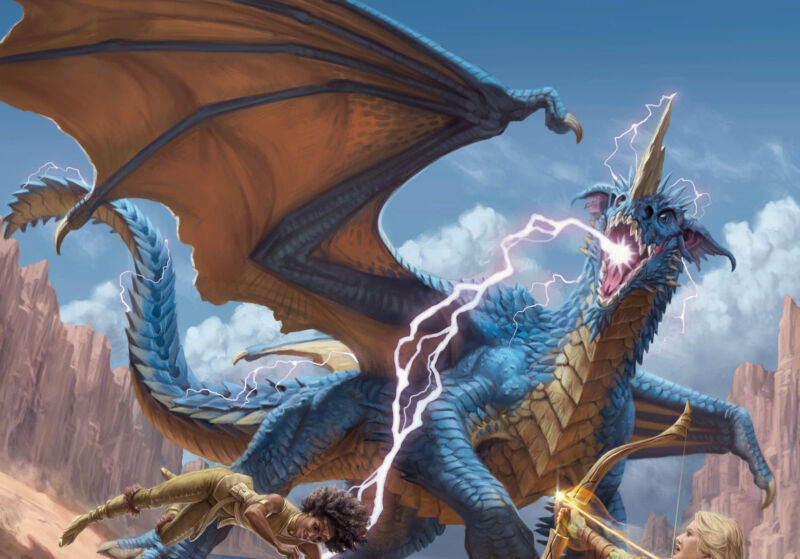
For instance, WotC now says directly that any content already released under the previous version of the OGL will "remain unaffected" by the update. That contradicts language in a leaked draft of the license update suggesting that the earlier version of the OGL "is no longer an authorized license agreement."
The updated version of the OGL also will "not contain... any royalty structure," WotC writes, despite draft language calling for a 25 percent royalty on annual revenues above $750,000. The now-removed royalty language was "designed to apply to large corporations attempting to use OGL content" and wasn't intended "to impact the vast majority of the community," the company writes. "However, it’s clear from the reaction that we rolled a 1."
WotC says it will also not claim a "nonexclusive, perpetual, irrevocable, worldwide, sub-licensable, royalty-free license" on fan-created content under the OGL, as suggested in the leaked draft update. That language was "intended to protect us and our partners from creators who incorrectly allege that we steal their work simply because of coincidental similarities," the company writes. Using that drafted provision as "a means for us to steal work," as some in the community feared, "never crossed our minds," WotC writes.
Backing away from backlash
WotC says it had circulated its draft copy of the proposed OGL update to content creators and publishers "so their feedback could be considered before anything was finalized." That sharing is evidence of WotC's attempt to "solicit the input of our community before any update to the OGL," the company writes. "Our goal was to get exactly the type of feedback on which provisions worked and which did not—which we ultimately got from you."
While an OGL update is still coming, WotC won't release it today "because we need to make sure we get it right," the company writes. That timing news comes after a Gizmodo report that a planned Thursday rollout for the new OGL had been pushed back amid the backlash, citing "inside sources at Wizards of the Coast."
WotC canceled a regularly scheduled D&D Beyond (DDB) livestream set for Thursday afternoon on its Twitch channel. A DDB livestream set for next Tuesday is still scheduled as of this writing.
Prior to today's update, Paizo Inc.—which has published the popular Pathfinder series under the OGL for years—announced Thursday that it had "no interest" in the revised version of the license as drafted. Instead, it said it is working on "a new open, perpetual, and irrevocable Open RPG Creative License." The new "system agnostic" licensing framework will eventually be owned by a nonprofit akin to the Linux Foundation, according to the company.
Other companies had indicated similar moves away from reliance on the OGL in light of the drafted license changes. Kobold Press announced that, while it is "wait[ing] to see what the future holds," it is "moving forward" with work on a new tabletop ruleset that isn't built on D&D. Old School Essentials similarly said it was "making various contingency plans in anticipation of the official release of the new OGL." And Troll Lord Games said outright that its upcoming products "will not have the OGL."
As of Friday morning, an open letter from the #OpenDND organizing group had claimed over 66,000 signatures demanding that "WotC revoke the draconian 1.1 OGL and pledge to support the existing 1.0 OGL into future editions of their game." Popular tabletop gaming influencer Ginny Di had also urged fellow players to cancel their D&D Beyond subscriptions in a widely shared message Thursday, a move that reportedly temporarily crashed the service's subscription management page for some.
"You’re going to hear people say that they won and we lost because making your voices heard forced us to change our plans," WotC writes. "Those people will only be half right. They won—and so did we."
reader comments
223